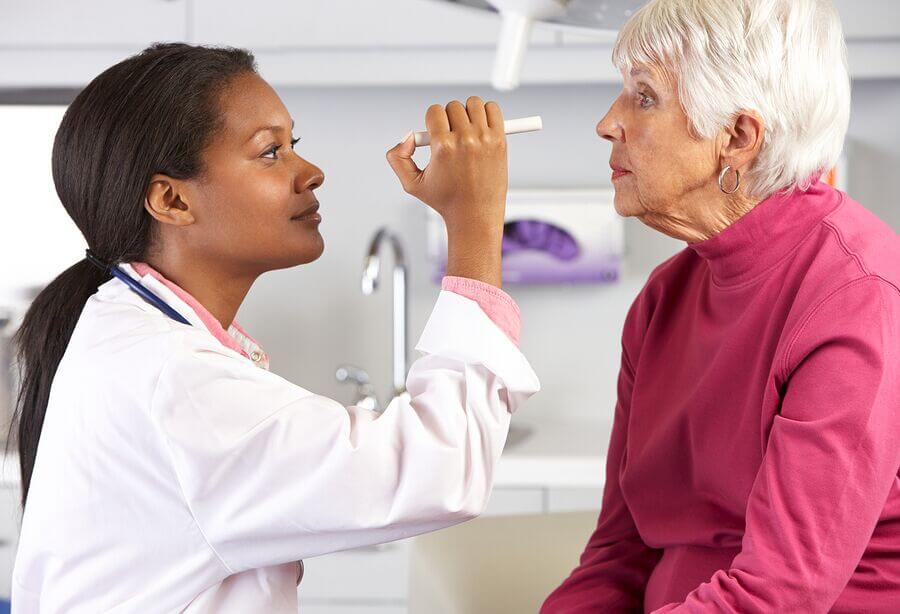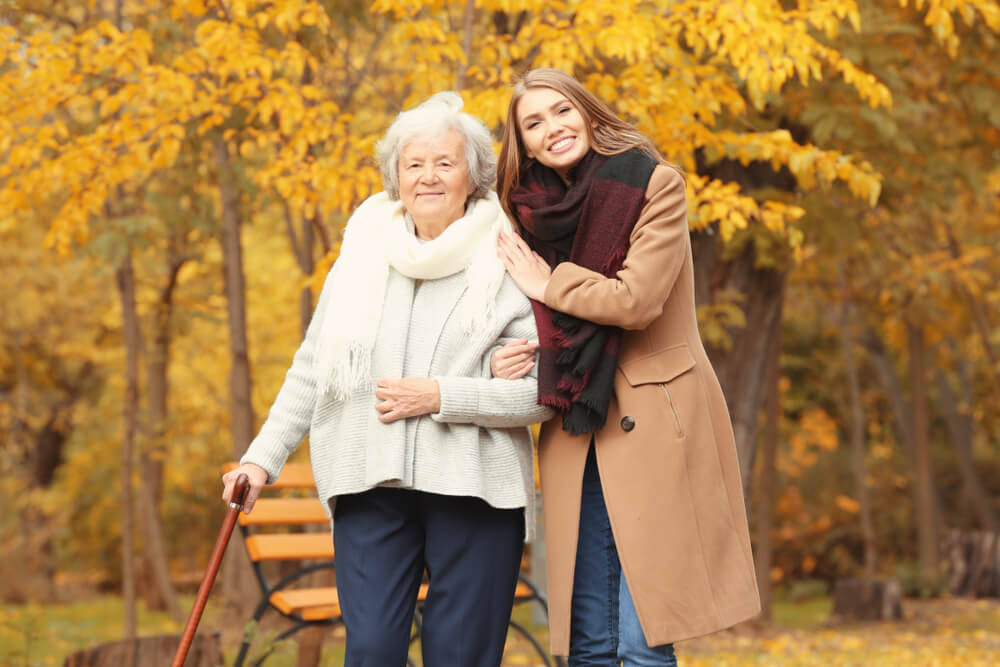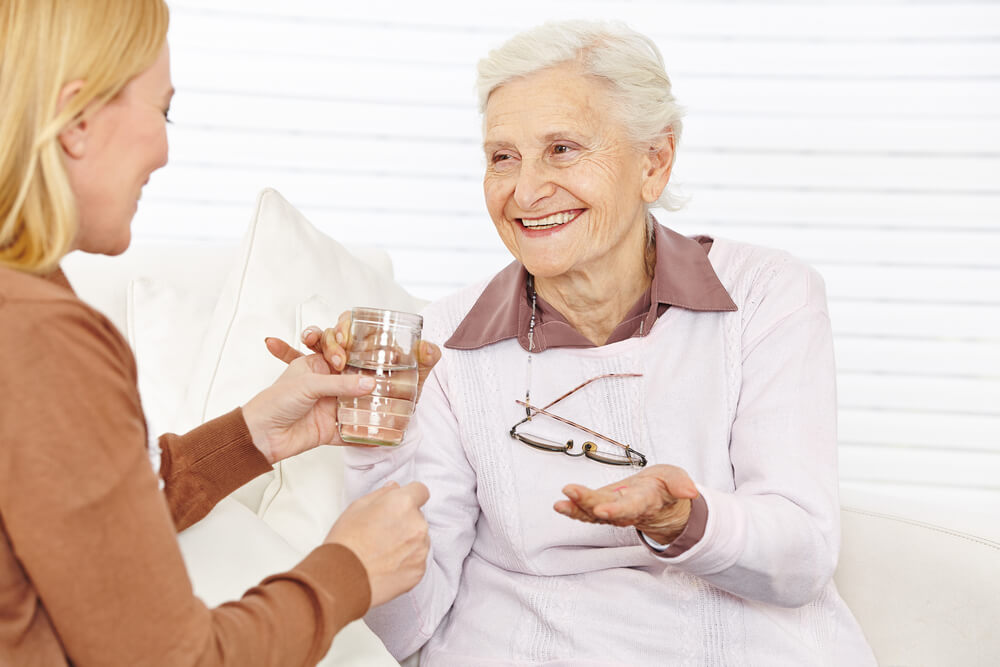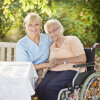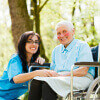When was the last time your aging relative had an eye exam?
If you’re not sure or if it has been a while, there are plenty of good reasons you should schedule an appointment soon. In fact, since August is National Eye Exam Month, this is the perfect time to focus (pun intended!) on good vision health for your older family member. Older adults are at higher risk for developing several eye problems. Below are some of the common ones—all of which are good reasons for your aging relative to have their eyes checked.
Age-Related Macular Degeneration (AMD)
AMD affects the retina, which is an area at the back of the eye. Specifically, it affects the macula, the part of the retina that is responsible for clear central vision. In addition, the macula allows people to see colors vividly and fine details. Without good central vision, your aging relative may be unable to read, drive, or recognize faces.
Dry Eye
Sometimes the tear glands fail to make enough tears or don’t produce good quality tears. This can cause the eyes to burn, turn red, and feel itchy. If dry eye isn’t treated, it can result in vision loss.
Cataracts
Usually, the lens of the eye is clear and it will allow adequate light to come in. When a person gets cataracts, the lens becomes cloudy. Cataracts aren’t painful, but they can cause vision loss. Cataracts can make your aging relative’s vision blurry or cause colors to seem duller than usual.
Problems with Eyelids
Sometimes older adults have problems with their eyelids, such as drooping or twitching. Sometimes eyelids get inflamed, too. Eyelid problems can cause the eyes to tear, itch, or hurt. These problems are often treated with medications or surgery.
Glaucoma
Glaucoma affects the optic nerve. Usually, it is linked to pressure in the eye. People with glaucoma may lose their peripheral, or side vision. Glaucoma can also lead to blindness.
Elder care can assist your aging relative to get to their eye appointment by driving them there. If the older adult suffers from low vision, there are many ways an elder care provider can help them to stay safe and have a better quality of life. Elder care providers can monitor older adults while they take their medications, ensuring they take the correct ones and in the proper dosages. Elder care providers can walk with your aging relative to make sure they do not fall and injure themselves. And, elder care providers can assist with things that require good vision, like reading, paying bills, and cooking.
